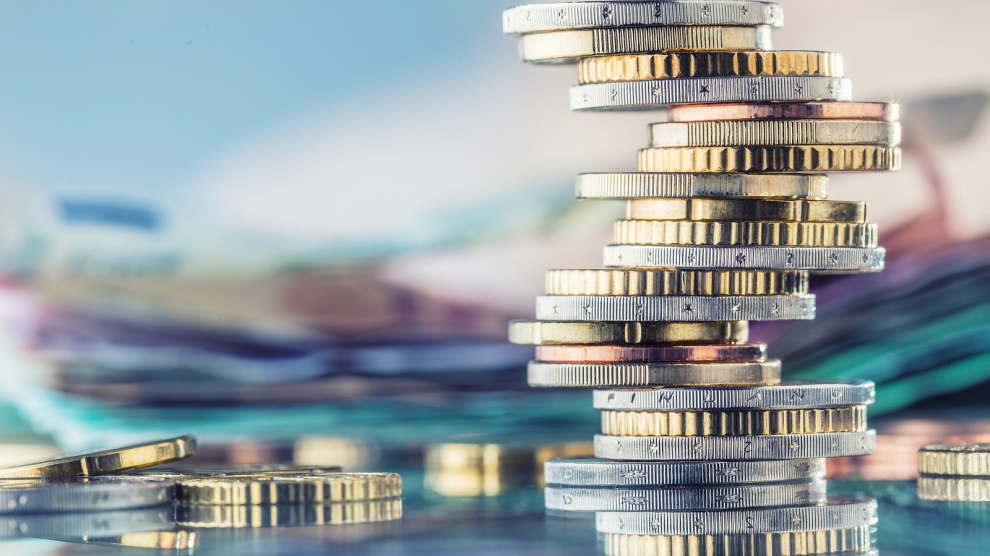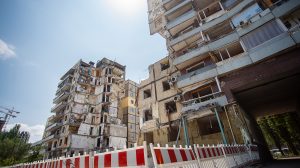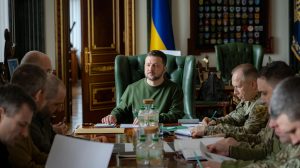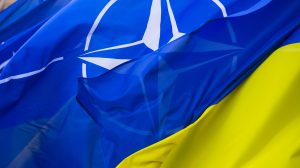Central Europe
Bulgaria’s new prime minister redoubled the government’s commitment to adopt the euro in two years in the face of fragile support among voters battered by the force of the pandemic. In an interview, Kiril Petkov addressed the need to actively shore up backing for introducing the single currency following a failure of public messaging in the Covid-19 crisis. The comments were the first explicit euro pledge made by Petkov since the Harvard Business School alumni and entrepreneur took office in December.
Miners employed by Poland’s largest coal company blocked deliveries of the fossil fuel to state-run power plants on Tuesday to demand higher pay to keep pace with surging consumer prices. Groups of protesters were stopping trains leaving the Halemba mine and other mines of the Polish Coalmining Group in the southern Silesia region. They demanded higher pay for weekend shifts and clear declarations that wages this year will rise to offset inflation that reached 7.7 per cent in November. They also were protesting imports of cheaper coal from Russia.
Poland’s President Andrzej Duda meanwhile this week tested positive for Covid-19 but has no serious symptoms, an aide said on Wednesday. The aide, Pawel Szrot, said on Twitter that Duda was under medical observation but feels well. Duda, 49, has been vaccinated against the coronavirus and received a booster shot last month, Szrot said. The president got tested this week because of cases among employees in his office. Duda previously tested positive in October 2020 and was reported at the time not to have experienced significant illness.
A former member of the Czech army has been sentenced to 21 years in prison for fighting on the side of pro-Russia separatists in eastern Ukraine. Martin Sukup, 49, was found guilty on Monday by the Prague City Court on charges linked to terrorism, Czech media reported. His lawyers said they would appeal the ruling, maintaining their client is innocent. Sukup was tried in absentia as he is believed to be in eastern Ukraine.
Former US president Donald Trump on Monday enthusiastically backed the reelection of Hungarian Prime Minister Viktor Orbán, a hero of the far-right who has been accused of creeping authoritarianism. In a statement issued along the lines of his frequent blessings to Republican candidates in primary elections at home, Trump wrote that the Hungarian leader has his “complete support and endorsement” in elections expected in April.
Romania-based cable TV and internet service provider Digi this week completed the sale of its Hungarian subsidiary to local information technology outfit 4iG. The deal, agreed last year, sees 4iG acquire Digi Hungary – which is ranked the second largest service provider in the broadband, pay TV and fixed telephony markets in the country – for 625 million euros. Digi generated revenues of 70 billion forints (200 million euros) and EBITDA of 19 billion forints in 2020.
Eastern Europe
The EU’s foreign affairs chief on Wednesday warned during a visit to Ukraine that Europe has to be part of talks between Moscow and Washington on security guarantees Russia has sought over Europe. Josep Borrell visited the frontline of Ukraine’s war with Moscow-backed forces, the first EU top diplomat to do so since the outbreak of the conflict in 2014. Borrell again reiterated that there will be “massive consequences and severe costs” for Russia if it launched a new military offensive against its neighbour.
Special envoys from Turkey and Armenia will meet for the first time in Moscow on January 14 for talks to try and normalise ties between the longtime foes, the foreign ministries of both countries said on Wednesday. The meeting comes more than two months after President Joe Biden urged Turkish President Recep Tayyip Erdogan at a meeting in Rome to work toward establishing diplomatic ties with landlocked Armenia and opening the countries’ shared border, according to previous comments by a senior Turkish official. Turkey shut the frontier in 1993 in solidarity with its ally Azerbaijan, which was fighting a war with Armenia over the contested territory of Nagorno-Karabakh.
North East Europe
Taiwan on Wednesday pledged to establish a 200 million US dollars fund to invest in Lithuania and open its markets to the country in reaction to what it calls China’s economic pressure. Taiwan would use the fund to invest in areas such as semiconductors, lasers, biotechnologies and research, Eric Huang, the head of Taiwan’s representative office in Vilnius, said at a press conference. It will also send a team to assess Lithuania’s aspirations to develop a semiconductor industry, he added. Lithuania has sought to build closer economic ties with Taiwan, with the goal of gaining a foothold in its chip sector. The drive started last year, when the Baltic nation left the Chinese-led 17+1 format, a group of EU states that Beijing uses to engage and influence the bloc.
Estonia has reassured crypto investors the government will not ban digital assets as it moves to tighten money laundering rules. Estonia is considering new anti money laundering policies which will increase due diligence standards, audits and require crypto firms to hold higher levels of capital. The draft legislation sparked concerns amongst crypto investors that the government is seeking to crack down on decentralised finance (DeFi) and non-custodial wallets which give users exclusive ownership of their digital assets and private keys. In a clarifying statement, Estonia’s Finance Ministry said that the new rules will apply to Virtual Asset Service Providers (VASPs), which handle crypto on behalf of clients, and will not impact on people’s ability to trade or buy digital assets.
South East Europe
The US Treasury Department says it has expanded sanctions on Bosnian Serb leader Milorad Dodik, who has led a campaign to strengthen a secessionist bid to withdraw from state-level institutions despite warnings from the West. The Treasury Department made the announcement on its website on Wednesday, saying it had added television station Alternativna Televizija, which is linked to Dodik, to the sanctions list as well. It gave no further details. Dodik has repeatedly threatened to withdraw the Republika Srpska from state-level institutions, describing Bosnia as “an experiment by the international community” and an “impossible, imposed country.”
Serb tennis player Novak Djokovic is awaiting his Australian Open fate in a Melbourne immigration hotel as the world No 1 mounts a legal challenge against Australia’s decision to cancel his visa. Djokovic’s lawyers succeeded in a bid to stop him from being deported on Thursday with a full hearing in the federal circuit court now scheduled for Monday. The tennis champion spent eight hours detained at Melbourne airport overnight before Australian Border Force officials announced he had been denied entry into the country on Thursday morning. They cited a failure to meet Australia’s Covid vaccination exemption requirements.
Southampton Football Club confirmed on Tuesday that Sport Republic, a London-based investment firm active in the sports and entertainment industry and backed by Serb billionaire Dragan Šolak, had completed the purchase of an 80 per cent stake in the English Premier League club from Gao Jisheng, a Chinese businessman. The value of the deal has not been disclosed by either Southampton or Sport Republic, but has been reported by Sky Sports at 100 million UK pounds.
Central Asia
Russian forces – under the guise of the Collective Security Treaty Organisation (CSTO) – have been deployed to Kazakhstan in order to assist the country’s authorities in their efforts to restore order as widespread protests threaten to sweep them from power. Protests continued for a fourth day on Thursday, despite reports of many deaths. Dozens of protesters were reportedly killed overnight by police after they attempted to storm government buildings in Almaty, Kazakhstan’s largest city. A representative of the Almaty police department, Saltanat Azirbek, was quoted by Russia’s Interfax news agency as saying that dozens of participants in “riots” had been “eliminated” in an “anti-terrorist” operation.
Turkmen border guards were reportedly involved in a sustained exchange of fire with Taliban forces on January 3, the first known time the two have been in a shoot-out. According to Helal Balkhi, head of the Taliban’s Information Department in the northern Jowzjan Province, it was Turkmen border guards who started shooting and the incident came after Turkmen troops shot and killed an Afghan civilian in the same area several days earlier.
Unlike many news and information platforms, Emerging Europe is free to read, and always will be. There is no paywall here. We are independent, not affiliated with nor representing any political party or business organisation. We want the very best for emerging Europe, nothing more, nothing less. Your support will help us continue to spread the word about this amazing region.
You can contribute here. Thank you.








Add Comment